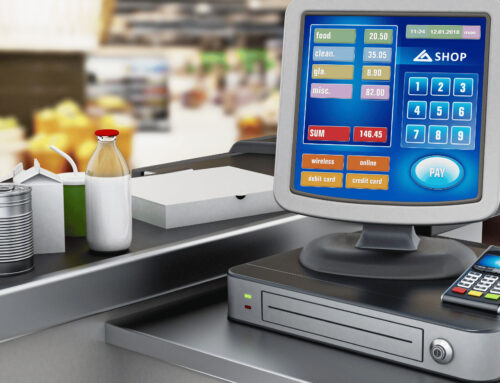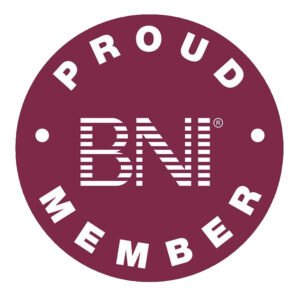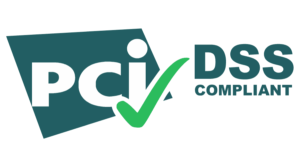Demystifying Credit Card Processing: The Guide Every Business Needs
Understanding Credit Card Processing
Credit card processing is the behind-the-scenes operation that powers modern commerce. It is the process of transmitting a cardholder's data from a point of purchase to the issuing bank for authorization and eventually settling the transaction.
With each swipe or online purchase, the transaction information goes through a series of steps that involve different entities. These entities work together to ensure the payment is correctly deducted from the cardholder's account and credited to the merchant's account. Understanding this process can help businesses navigate fees, security concerns, and service options.
The Players in Credit Card Processing
There are several key players in the credit card processing ecosystem. These include:
- Cardholder: The individual who owns the credit card.
- Merchant: The business accepting the credit card payment.
- Acquiring Bank: The merchant's bank.
- Issuing Bank: The bank that issued the customer's credit card.
- Card Networks: Organizations such as Visa, MasterCard, American Express, and Discover.
- Payment Processor: Companies that handle transactions between the merchant and the issuing bank.
All these players need to interact smoothly to ensure that your credit card transactions are processed seamlessly.
Credit Card Processing Fees: What to Expect
Credit card processing fees are the costs that merchants incur to process credit card transactions. These fees can be divided into three main categories:
- Interchange Fees: These are fees charged by the card-issuing bank and are typically a percentage of each transaction.
- Assessment Fees: Charged by the credit card networks for utilizing their infrastructure.
- Processor's Markup: This is what your payment processor charges for their service.
Understanding these fees can help merchants predict their monthly costs and choose the best processor for their needs.
Types of Credit Card Processing Methods
Today's businesses need to be able to accept credit card payments in multiple ways. These include:
- In-Person Payments: These involve card readers and POS systems.
- Online Payments: For online sales, a payment gateway is required.
- Mobile Payments: Merchants can use mobile credit card processing to accept payments on the go.
- Telephone and Mail Orders: These use a method called 'card not present' transactions.
Depending on their specific needs, businesses can utilize one or more of these credit card processing methods.
Security Measures in Credit Card Processing
Data security is a significant concern in credit card processing. Here's how it's addressed:
- PCI Compliance: The Payment Card Industry Data Security Standard (PCI DSS) is a set of standards all businesses must adhere to when they accept card payments.
- Encryption: This involves coding the transaction data to protect it during transmission.
- Tokenization: This replaces sensitive data with unique identifiers, or "tokens," to prevent fraud.
Ensuring your business is following these security measures is vital to protect your customers and your reputation.
How to Choose a Credit Card Processor
Choosing the right credit card processor is crucial. Here are some things to consider:
- Fee Structure: Some processors offer lower rates but charge extra fees. It's important to understand the full pricing structure.
- Types of Accepted Cards: Make sure the processor accepts all the major card brands.
- Customer Support: Look for a processor with excellent customer service.
Remember, a good processor can make your business operations smoother and more efficient.
Pros and Cons of Credit Card Processing
Accepting credit cards has many advantages but also some drawbacks.
Pros:
- Increase in sales
- Improved cash flow
- Customer convenience
Cons:
- Processing fees
- Chargebacks and disputes
- Security issues
Understanding these pros and cons can help businesses make an informed decision about credit card processing.
The Future of Credit Card Processing
The world of credit card processing is ever-evolving. The future may bring more advancements in technology, tighter security measures, and greater convenience for customers. As a business, staying ahead of these trends can help you be prepared for whatever comes next in the realm of credit card processing.
FAQs
What is a credit card processor? A credit card processor is a company that manages the credit card transaction process, acting as a liaison between the merchant, the issuing bank, and the acquiring bank.
Why are credit card processing fees charged? Credit card processing fees are charged to cover the cost of the technology and systems required to process credit card transactions and to compensate the parties involved in the transaction.
What are the types of credit card processing fees? The three main types of credit card processing fees are interchange fees, assessment fees, and the processor's markup.
What is PCI Compliance in credit card processing? PCI Compliance refers to a set of standards designed to ensure that all companies that accept, process, store or transmit credit card information maintain a secure environment.
How do I choose a credit card processor for my business? Consider factors like fee structure, types of accepted cards, and customer support when choosing a credit card processor for your business.
What are the future trends in credit card processing? Future trends in credit card processing may include advanced technology like AI and machine learning, improved security measures like biometrics, and more integrated payment systems.
Conclusion
In a world increasingly turning to digital transactions, understanding credit card processing is no longer a luxury—it's a necessity. By becoming well-versed in how credit card processing works, you can choose the right service, reduce fees, and improve customer satisfaction.












